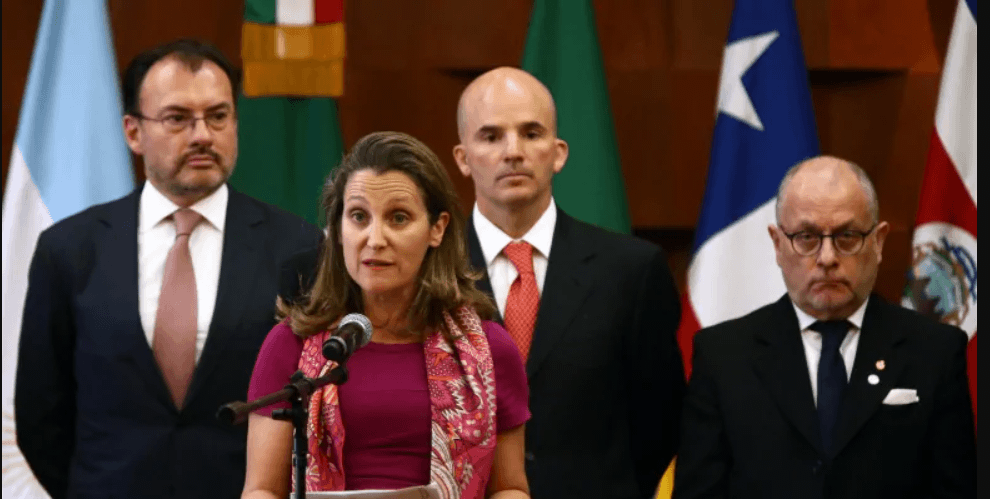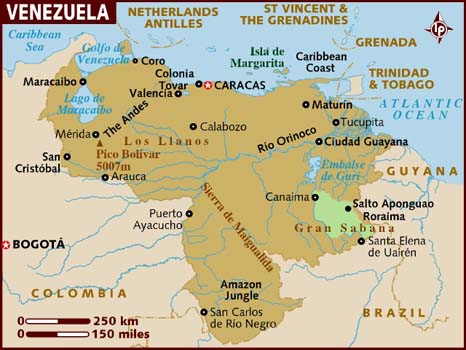Maduro’s presidency questioned
January 6, 2019 | Expert Insights

A dozen Latin American nations including Canada are questioning Nicolas Maduro’s presidency in Venezuela as he is soon to begin his second term in power. These nations are urging him to hand over power as the only solution to restoring democracy in the country.
Background
Nicolas Maduro took office in 2013. Under his leadership, there has been a spike in inflation and shortage of goods. A drop in oil prices has added to the administration’s problems. He has retained power by weakening institutions and rigging elections. He has been accused of committing serious human rights abuses and engaging in rampant corruption. Despite having the world's largest proven oil deposits, many Venezuelans are living in abject poverty.
The UN says 1.6 million Venezuelans have fled the country since the economic meltdown in 2015. Venezuela’s economy has contracted by 35 per cent since 2013, much larger than the one experienced by the USA during the Great Depression in the 1930s. Private banks permit Venezuelans to withdraw only 30,000 bolivars ($2.88) from an ATM at a time. The country has presently a reserve of only $10billion.

Analysis
Foreign Ministers from 12 nations in the Latin American region including Canada are questioning the legitimacy President Nicolas Maduro as he is soon-to-begin his second term. Governments of these nations are urging him to hand over power as the only path of restoring democracy in Venezuela.
The multilateral body, The Lima Group, have also urged Maduro to refrain from taking the presidential oath but instead cede power to the opposition-controlled congress until new, fairer elections are held. The Lima Group, consisting of 14 member nations, was formed by mostly conservative-run regional governments to defuse the crisis in Venezuela that is increasingly threatening regional stability. It was established following the Lima Declaration on 8 August 2017 in the Peruvian capital of Lima.
The sharp criticism arose after a meeting among foreign ministers of Argentina, Brazil and Columbia. They said: “Only through the full restoration, as soon as possible, of democracy and respect for human rights is it possible to resolve the country’s political, economic, social and humanitarian crisis”.
Peru's Foreign Minister Nestor Popolizio said: "The main message is undoubtedly the non-recognition of the Venezuelan regime's new term". He also iterated the Lima group’s suggestion of urging Maduro to transfer power temporarily and to respect the powers of the assembly.
However, Venezuela hit back at the group and accused them of fueling a coup at the behest of the US. A statement read by Venezuela's foreign minister, Jorge Arreaza, says it is "great bewilderment at the extravagant declaration of a group of countries of the American continent which, after receiving instructions from the United States through a video conference, have agreed to encourage a coup d'etat".
Though the US is not a formal member of the Lima group, they have been vocally supportive. In September the US Secretary of State Mike Pompeo vowed to take a "series of actions" against the government of Nicolas Maduro in the “best interest” of Venezuelans.
Counterpoint
Mexico was one of the early and biggest promoters of the Lima Group. However, it sent a lower-level representative to the respective meeting. The representative refused to sign the resolution, thus, reflecting the policy of non-intervention favoured by that nation’s new leftist president, Andrés Manuel López Obrador. Maduro had also travelled to López Obrador’s inauguration. He had also met with the Mexican leader privately.
Assessment
Our assessment is that the concerted effort by the Lima group to persuade Maduro to step down is to prevent Venezuela from becoming a de-facto failed state in the Latin American region. We feel that there would be stiff resistance from Maduro and his supporters who would rally against such a change. We also think that further foreign intervention could lead to regime change in the country. In our opinion, the objective of any foreign intervention must be to address the devastating economic crisis and in finding a solution to the present political turmoil.








Comments